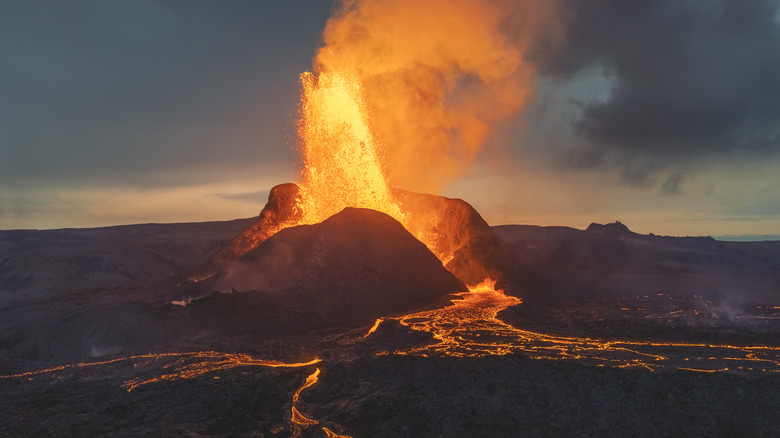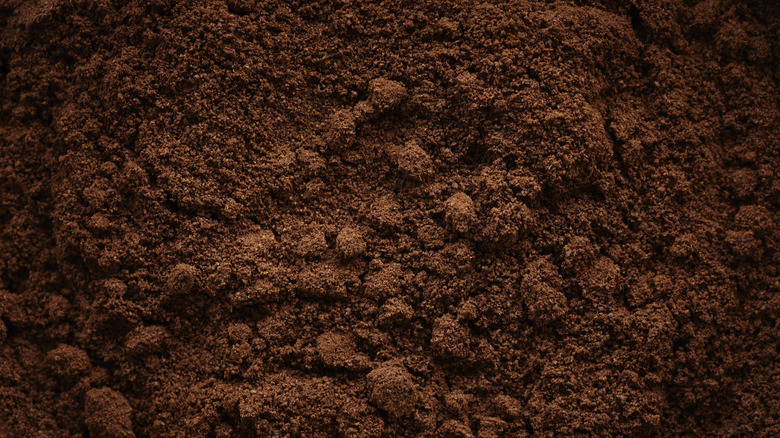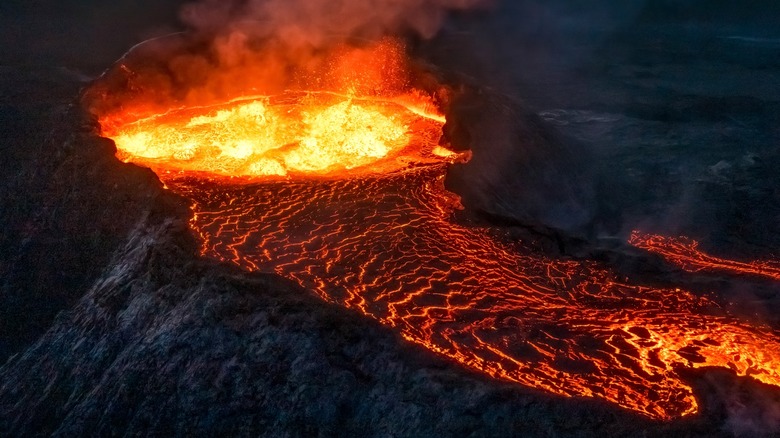The Scientific Link Between Grinding Coffee Beans And ... Volcanoes?
Well over 2 billion cups of coffee are tossed back by people around the world on a daily basis. If you're among the sizable sector of the population that consumes this brown and bitter brew, you've probably got your caffeine routine down to the finest details. You may frequent your local coffee shop, or choose to make your own, experimenting with all of the ways to brew the perfect cup of coffee. Techniques for crafting the perfect cup of joe seem to constantly be emerging. In fact, a recent discovery has shown a more effective way to grind coffee beans, and it's sure to make your brew erupt with flavor.
Grinding coffee beans increases the surface area that the water is able to interact with, which allows the flavor to leak out of the beans faster than it would if they were whole. However, the very act of grinding beans can affect the flavor of your brew, as it introduces static electricity to the grounds and causes microscopic clumps. When a volcano erupts, ash and rocks rubbing against each other make a similar static charge, which often leads to lightning strikes. Witnessing and studying this awe-inspiring natural phenomenon led scientists to reevaluate the seemingly simple cup of coffee.
Why baristas can learn from volcanologists
A recent study published in the journal Matter brought together coffee connoisseurs and volcanologists to evaluate the effects of grinding down coffee beans. Dr. Christopher Hendon, a professor of chemistry at the University of Oregon, is the founder of an on-campus coffee lab, whose patrons included volcanologist Dr. Méndez Harper. The scientists teamed up to employ tools and methods used to measure electricity in volcanic ash to study coffee grounds instead, and the results were surprising.
The scientists noted that the process of ash and rock being projected from a volcano is comparable to grinding coffee beans, in that both generate static electricity. This charge, which is caused by the beans colliding in the grinder, causes the grounds to repel each other, which can make a mess. The static charge also results in clumps, which limits the surface area available for the grounds and water to interact, resulting in a weaker brew. Even when the coffee looks finely ground, microscopic clumps can form during brewing, which dilutes the overall flavor, as water flows around these clumps.
The solution to static charge
The findings of the study have given us a solution to this coffee conundrum. Coincidentally, it involves a method that has long been employed by baristas to reduce messes on the coffee counter. Known as the "Ross Droplet" technique, spraying a small amount of water onto your beans before grinding is a surefire way to cut down on static electricity, similar to how water vapor shapes the nature of volcanic eruptions. Water acts as an insulator, preventing coffee grounds from flying around and forming microscopic clumps during the brewing process.
Aside from improving the taste of your morning brew, this new scientific study could also save purveyors of coffee a considerable chunk of change. If everyone sprayed their coffee grounds with a little water before grinding, the world could save over $250 million of lost product every year, Dr. Hendon told The Telegraph. The researchers believe studying coffee grounds could give more insights into the broader field of geophysics, including the nature of landslides and how water seeps through soil.


